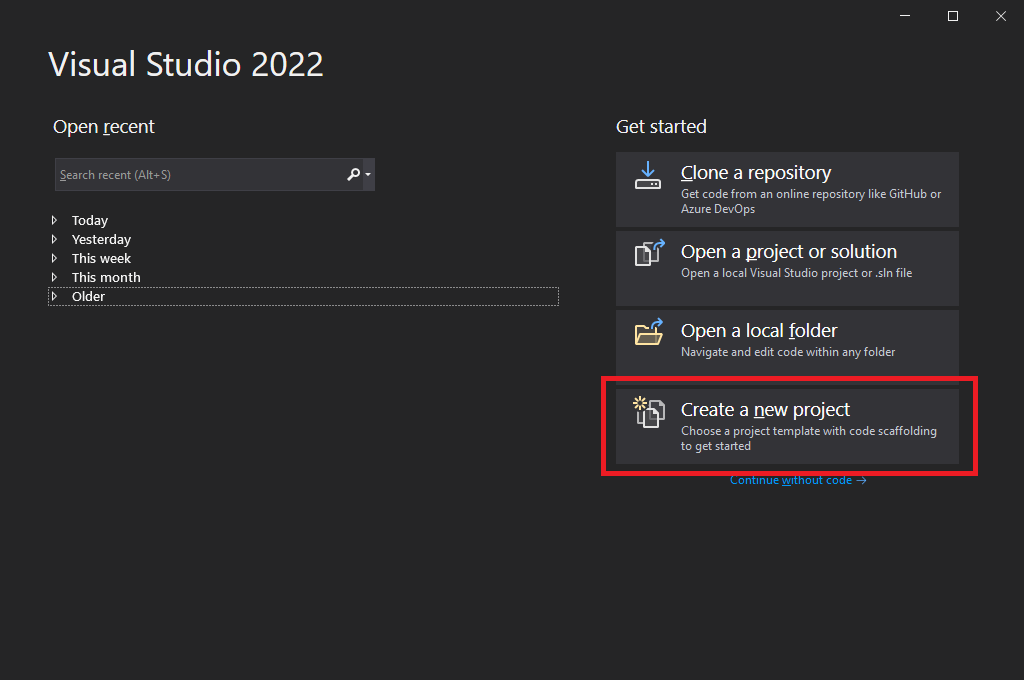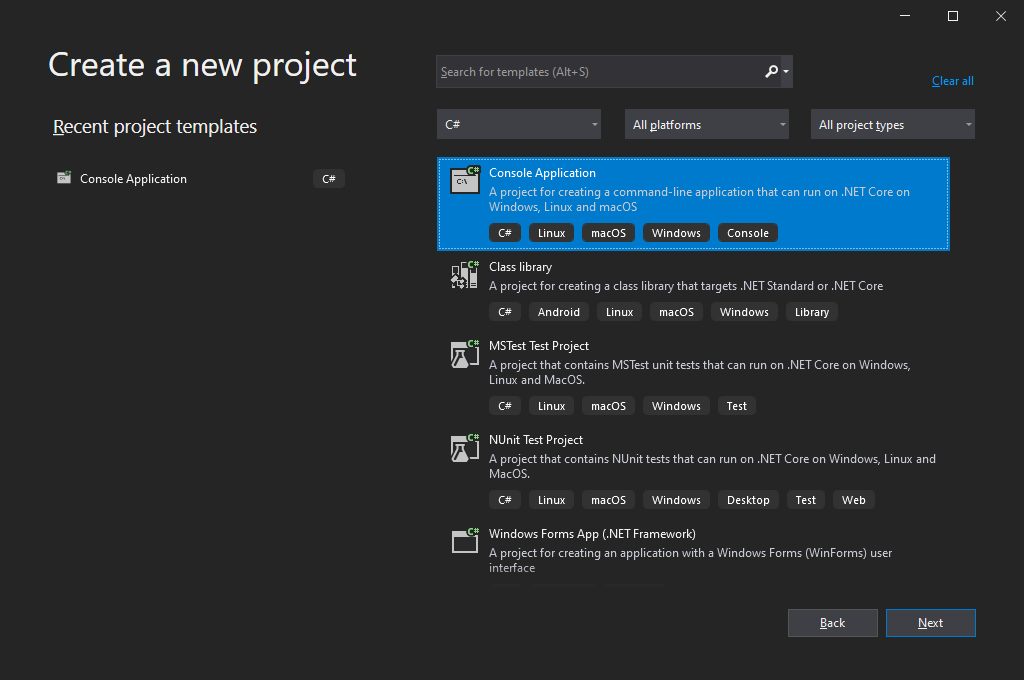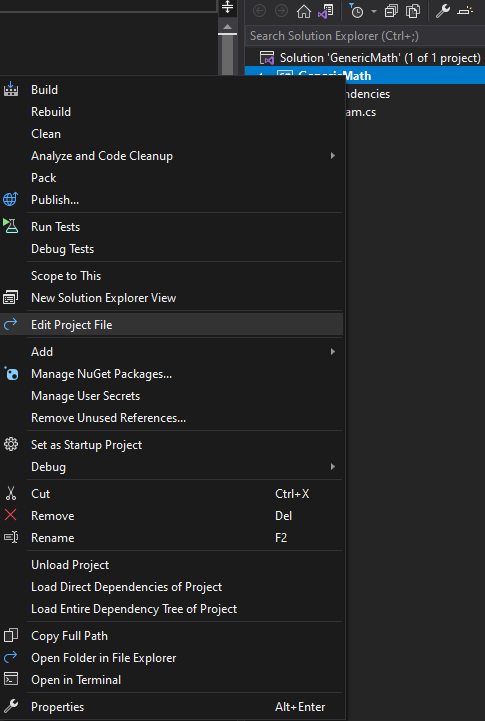If you’ve ever wanted to use operators with generic types or thought that interfaces could be improved by supporting the ability to define static methods as part of their contract, then this blog post is for you. With .NET 6 we will be shipping a preview of the new generic math and static abstracts in interfaces features. These features are shipping in preview form so that we can get feedback from the community and build a more compelling feature overall. As such, they are not supported for use in a production environment in .NET 6. It is highly recommended that you try the feature out and provide feedback if there are scenarios or functionality you feel is missing or could otherwise be improved.
Requires preview features attribute
Central to everything else is the new RequiresPreviewFeatures attribute and corresponding analyzer. This attribute allows us to annotate new preview types and new preview members on existing types. With this capability, we can ship an unsupported preview feature inside a supported major release. The analyzer looks for types and members being consumed that have the RequiresPreviewFeatures attribute and will give a diagnostic if the consumer is not marked with RequiresPreviewFeatures itself. To provide flexibility in the scope of a preview feature, the attribute can be applied at the member, type, or assembly level.
Because preview features are not supported for use in production and the APIs will likely have breaking changes before becoming supported, you must opt-in to using them. The analyzer will produce build errors for any call sites that haven’t been opted-into preview feature usage. The analyzer is not available in .NET 6 Preview 7, but will be included in .NET 6 RC1.
Static Abstracts in Interfaces
C# is planning on introducing a new feature referred to as Static Abstracts in Interfaces. As the name indicates, this means you can now declare static abstract methods as part of an interface and implement them in the derived type. A simple but powerful example of this is in IParseable which is the counterpart to the existing IFormattable. Where IFormattable allows you to define a contract for generating a formatted string for a given type, IParseable allows you to define a contract for parsing a string to create a given type:
public interface IParseable<TSelf>
where TSelf : IParseable<TSelf>
{
static abstract TSelf Parse(string s, IFormatProvider? provider);
static abstract bool TryParse([NotNullWhen(true)] string? s, IFormatProvider? provider, out TSelf result);
}
public readonly struct Guid : IParseable<Guid>
{
public static Guid Parse(string s, IFormatProvider? provider)
{
/* Implementation */
}
public static bool TryParse([NotNullWhen(true)] string? s, IFormatProvider? provider, out Guid result)
{
/* Implementation */
}
}A quick overview of the feature is:
- You can now declare interface members that are simultaneously
staticandabstract - These members do not currently support Default Interface Methods (DIMs) and so
staticandvirtualis not a valid combination - This functionality is only available to interfaces, it is not available to other types such as
abstract class - These members are not accessible via the interface, that is
IParseable<Guid>.Parse(someString, null)will result in a compilation error
To elaborate on the last point, normally abstract or virtual members are invoked via some kind of virtual dispatch. For static methods we don’t have any object or instance in which to carry around the relevant state for true virtual dispatch and so the runtime wouldn’t be able to determine that IParseable<Guid>.Parse(...) should resolve to Guid.Parse. In order for this to work, we need to specify the actual type somewhere and that is achievable through generics:
public static T InvariantParse<T>(string s)
where T : IParseable<T>
{
return T.Parse(s, CultureInfo.InvariantCulture);
}By using generics in the fashion above, the runtime is able to determine which Parse method should be resolved by looking it up on the concrete T that is used. If a user specified InvariantParse<int>(someString) it would resolve to the parse method on System.Int32, if they specified InvariantParse<Guid>(someString) it would resolve to that on System.Guid, and so on. This general pattern is sometimes referred to as the Curiously Recurring Template Pattern (CRTP) and is key to allowing the feature to work.
More details on the runtime changes made to support the feature can be found here.
Generic Math
One long requested feature in .NET is the ability to use operators on generic types. Using static abstracts in interfaces and the new interfaces being exposed in .NET, you can now write this code:
public static TResult Sum<T, TResult>(IEnumerable<T> values)
where T : INumber<T>
where TResult : INumber<TResult>
{
TResult result = TResult.Zero;
foreach (var value in values)
{
result += TResult.Create(value);
}
return result;
}
public static TResult Average<T, TResult>(IEnumerable<T> values)
where T : INumber<T>
where TResult : INumber<TResult>
{
TResult sum = Sum<T, TResult>(values);
return TResult.Create(sum) / TResult.Create(values.Count());
}
public static TResult StandardDeviation<T, TResult>(IEnumerable<T> values)
where T : INumber<T>
where TResult : IFloatingPoint<TResult>
{
TResult standardDeviation = TResult.Zero;
if (values.Any())
{
TResult average = Average<T, TResult>(values);
TResult sum = Sum<TResult, TResult>(values.Select((value) => {
var deviation = TResult.Create(value) - average;
return deviation * deviation;
}));
standardDeviation = TResult.Sqrt(sum / TResult.Create(values.Count() - 1));
}
return standardDeviation;
}This is made possible by exposing several new static abstract interfaces which correspond to the various operators available to the language and by providing a few other interfaces representing common functionality such as parsing or handling number, integer, and floating-point types. The interfaces were designed for extensibility and reusability and so typically represent single operators or properties. They explicitly do not pair operations such as multiplication and division since that is not correct for all types. For example, Matrix4x4 * Matrix4x4 is valid, Matrix4x4 / Matrix4x4 is not. Likewise, they typically allow the input and result types to differ in order to support scenarios such as double = TimeSpan / TimeSpan or Vector4 = Vector4 * float.
If you’re interested to learn more about the interfaces we’re exposing, take a look at the design document which goes into more detail about what is exposed.
| Operator Interface Name | Summary |
|---|---|
| IParseable | Parse(string, IFormatProvider) |
| ISpanParseable | Parse(ReadOnlySpan<char>, IFormatProvider) |
| IAdditionOperators | x + y |
| IBitwiseOperators | x & y, x | y, x ^ y, and ~x |
| IComparisonOperators | x < y, x > y, x <= y, and x >= y |
| IDecrementOperators | --x and x-- |
| IDivisionOperators | x / y |
| IEqualityOperators | x == y and x != y |
| IIncrementOperators | ++x and x++ |
| IModulusOperators | x % y |
| IMultiplyOperators | x * y |
| IShiftOperators | x << y and x >> y |
| ISubtractionOperators | x - y |
| IUnaryNegationOperators | -x |
| IUnaryPlusOperators | +x |
| IAdditiveIdentity | (x + T.AdditiveIdentity) == x |
| IMinMaxValue | T.MinValue and T.MaxValue |
| IMultiplicativeIdentity | (x * T.MultiplicativeIdentity) == x |
| IBinaryFloatingPoint | Members common to binary floating-point types |
| IBinaryInteger | Members common to binary integer types |
| IBinaryNumber | Members common to binary number types |
| IFloatingPoint | Members common to floating-point types |
| INumber | Members common to number types |
| ISignedNumber | Members common to signed number types |
| IUnsignedNumber | Members common to unsigned number types |
The binary floating-point types are System.Double (double), System.Half, and System.Single (float). The binary-integer types are System.Byte (byte), System.Int16 (short), System.Int32 (int), System.Int64 (long), System.IntPtr (nint), System.SByte (sbyte), System.UInt16 (ushort), System.UInt32 (uint), System.UInt64 (ulong), and System.UIntPtr (nuint). Several of the above interfaces are also implemented by various other types including System.Char, System.DateOnly, System.DateTime, System.DateTimeOffset, System.Decimal, System.Guid, System.TimeOnly, and System.TimeSpan.
Since this feature is in preview, there are various aspects that are still in flight and that may change before the next preview or when the feature officially ships. For example, we will likely be changing the name of INumber<TSelf>.Create to INumber<TSelf>.CreateChecked and INumber<TSelf>.CreateSaturating to INumber<TSelf>.CreateClamped based on feedback already received. We may also expose new or additional concepts such as IConvertible<TSelf> or interfaces to support vector types and operations.
If any of the above or any other features are important to you or you feel may impact the usability of the feature in your own code, please do provide feedback (.NET Runtime or Libraries, C# Language, and C# Compiler are generally good choices). In particular:
- Checked operators are not currently possible and so
checked(x + y)will not detect overflow: csharplang#4665 - There is no easy way to go from a signed type to an unsigned type, or vice versa, and so selecting logical (unsigned) vs arithmetic (signed) shift is not possible: csharplang#4682
- Shifting requires the right-hand side to be
System.Int32and so additional conversions may be required: csharplang#4666 - All APIs are currently explicitly implemented, many of these will likely become implicitly available on the types when the feature ships
Trying out the features
In order to try out the features there are a few steps required:
- Create a new C# console application targeting .NET 6 on the command line or in your favorite IDE




- Edit the project file to opt into using preview features by setting the
EnablePreviewFeaturesproperty to true, and to reference the System.Runtime.Experimental NuGet package.

<Project Sdk="Microsoft.NET.Sdk">
<PropertyGroup>
<EnablePreviewFeatures>true</EnablePreviewFeatures>
<LangVersion>preview</LangVersion>
<OutputType>Exe</OutputType>
<TargetFramework>net6.0</TargetFramework>
</PropertyGroup>
<ItemGroup>
<PackageReference Include="System.Runtime.Experimental" Version="6.0.0-preview.7.21377.19" />
</ItemGroup>
</Project>- Create a generic type or method and constrain it to one of the new static abstract interfaces
// See https://aka.ms/new-console-template for more information
using System.Globalization;
static T Add<T>(T left, T right)
where T : INumber<T>
{
return left + right;
}
static T ParseInvariant<T>(string s)
where T : IParseable<T>
{
return T.Parse(s, CultureInfo.InvariantCulture);
}
Console.Write("First number: ");
var left = ParseInvariant<float>(Console.ReadLine());
Console.Write("Second number: ");
var right = ParseInvariant<float>(Console.ReadLine());
Console.WriteLine($"Result: {Add(left, right)}");- Run the program and observe the output
First number: 5
Second number: 3.14
Result: 8.14
Closing
While we only briefly covered the new types and gave a simple example of their usage, the potential applications are much broader. We are looking forward to your feedback and seeing what awesome ways you can use this to improve your existing code or in the creation of new code. You can log feedback on any of the existing issues linked above or open new issues, as appropriate, on the relevant GitHub repository (.NET Runtime or Libraries, C# Language, and C# Compiler are generally good choices).


54 comments